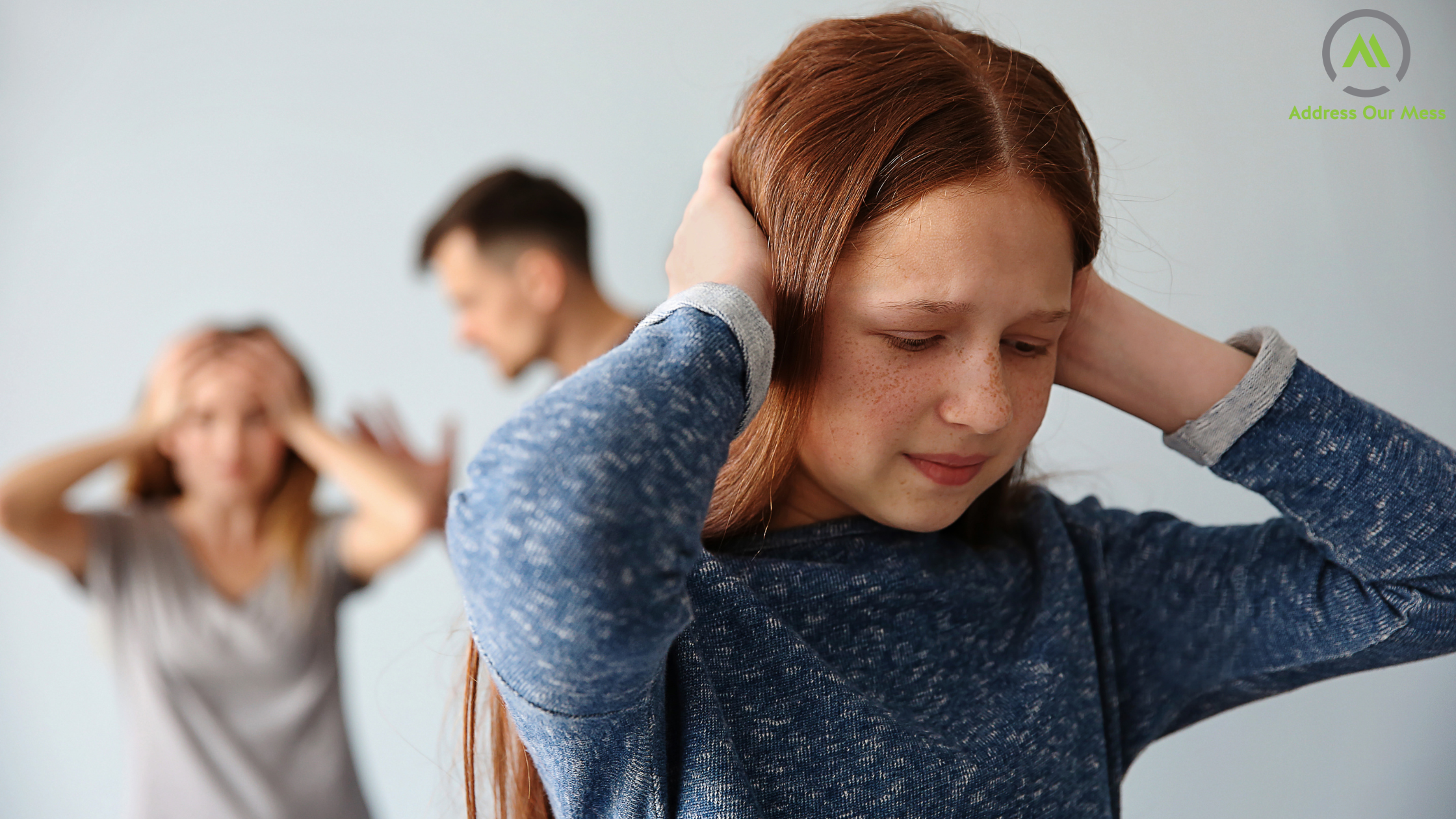
Emotional effects of hoarding disorder include:
- Embarrassment:
- Anxiety:
- Depression:
Embarrassment:
Hoarders, children, and loved ones of hoarders may be embarrassed, ashamed, and insecure about their family member(s) and situation. If they are still residing within the home, they may avoid letting others see their place of residence. These individuals may not reveal where they live to their friends or may even isolate themselves from society to avoid close relationships and possible exposure of their family secret. Adult children may refuse to associate themselves with their hoarding parent(s) upon leaving the house.
Anxiety:
Stress and anxiety can also be felt by hoarders, children, and loved ones of hoarders. They may not understand how this family member can continue their hoarding behavior despite the negative impacts that result. Family members of a hoarder may be stressed about the conditions they are residing in and/or about the inability to change the hoarding circumstances. Feelings of resentment towards the hoarder may be experienced due to frustration and anger about the situation. Some situations may leave family members feeling depressed because they feel they cannot help the hoarder or themselves.
Depression:
Hoarders and those who live with a hoarder may cut themselves off from others, becoming isolated. The combination of isolation, stress, and feelings of defeat can lead to the individual feeling upset over their circumstances, which can lead to depression.
Embarrassment, Anxiety, & Depression May Lead too:
- Minimalist or hoarding behavior: children of hoarders may particularly develop minimalist or hoarding behavior of their own, which may result from having grown up in a hoarding environment. Many kids copy the habits of their parents or may completely oppose their parents’ lifestyle. The hoarding behavior may be learned behavior, having grown up with one or more parents who are hoarders. However, for those who are embarrassed and/or disgusted by the hoarding environment they grew up in, they may develop minimalist behavior in reaction to the hoarding environment that they grew up in. The Bio-Behavioral Institute says that “Not only does this distance a family, but the hoarder becomes further socially isolated. Adult children often copy or oppose the behavior that they witnessed as they grew. Either hoarding behaviors are learned and repeated, despite living separately, or the adult child, embarrassed and disgusted at how they lived, become minimalists” (How Compulsive Hoarding Affects Families).
- Insomnia and problems with sleep patterns: hoarders, and their children and loved ones, can develop insomnia and problems with sleep patterns because of stress put on them stemming from hoarding. The stress makes it difficult to relax and sleep, leading to insomnia and problems with sleep patterns.
- Stress and anxiety: Stress and anxiety over hoarding conditions is a common experience for hoarders, children, and loved ones of hoarders. A “messy” environment can produce negative and pessimistic feelings by just observing it. Furthermore, if other people are criticizing the individual and his/her living situation, this may result in additional feelings of stress.
- Social skills may be impaired: Children of hoarders may have impaired social skills due to growing up in a socially isolated hoarding environment. Growing up in isolation, some children may become socially awkward, unsure of how to form relationships with people and avoid uncovering their family’s hoarding secret.
It is important to look out for these emotions, and the behavior they made lead to, to avoid relapse of hoarding behavior and further negative consequences.
Call 410-589-2747, email info@addressourmess.com, or use our contact us page to reach out to us for more information on our Hoarding Cleanup Service. We are here to help!